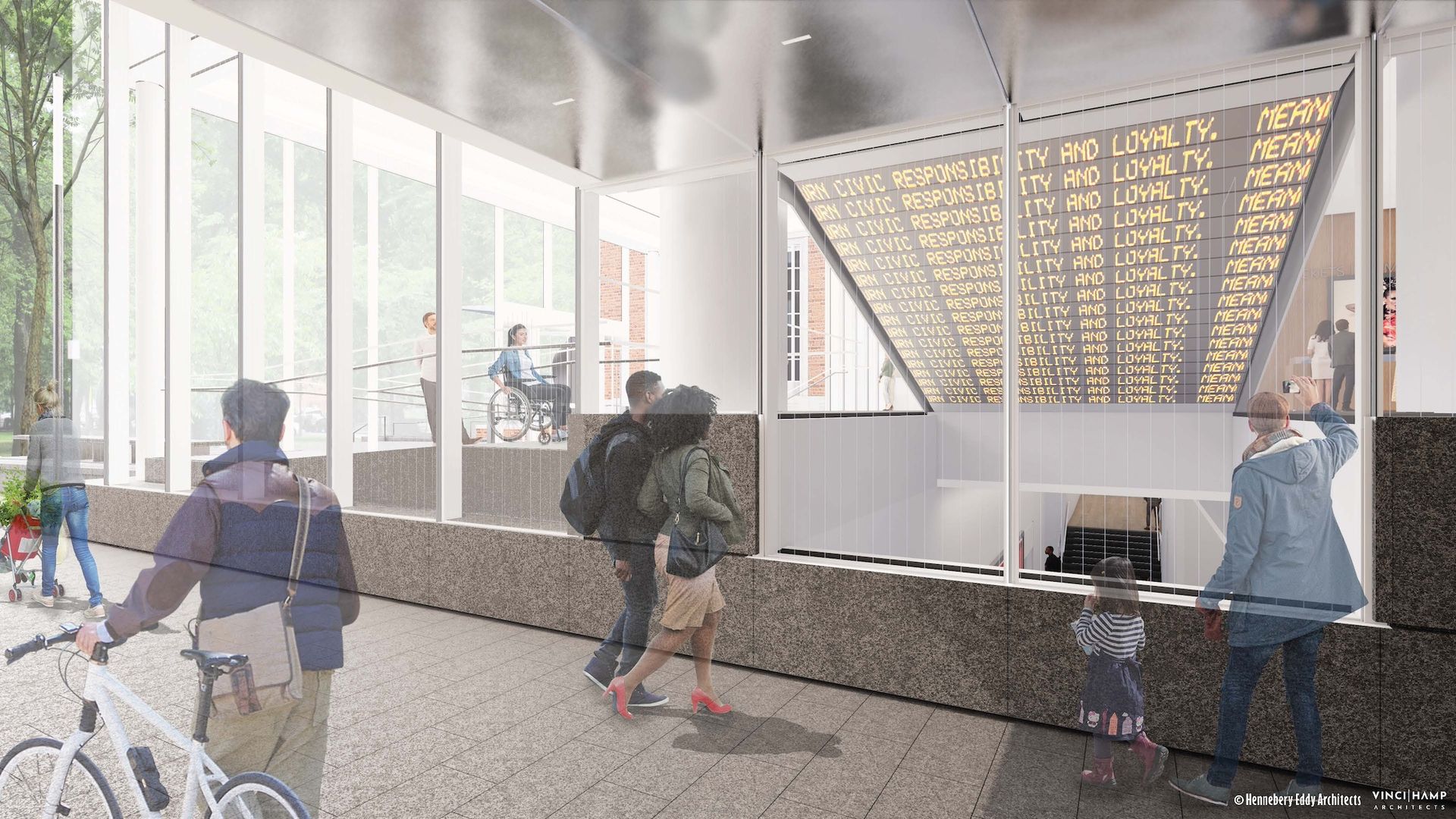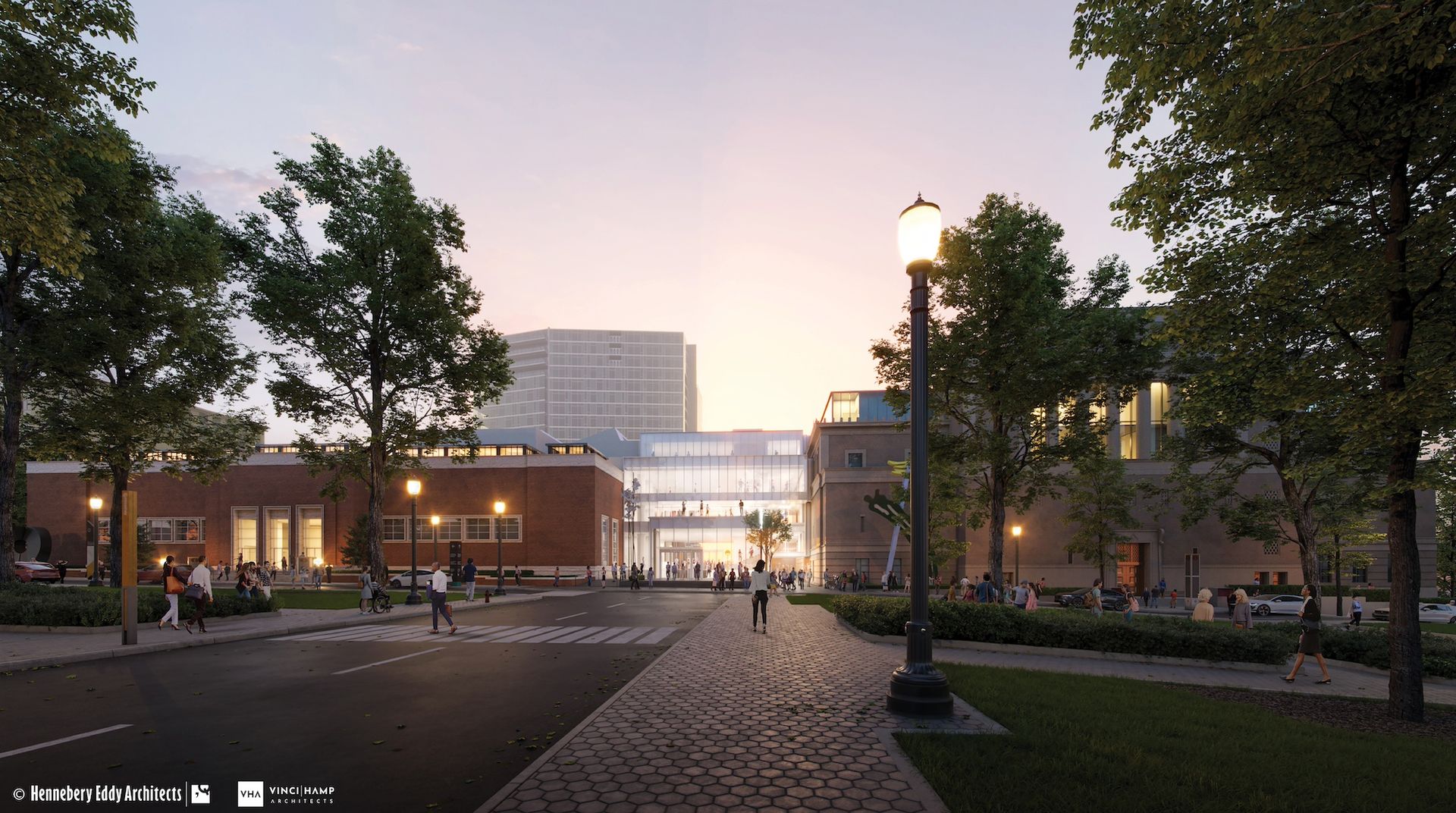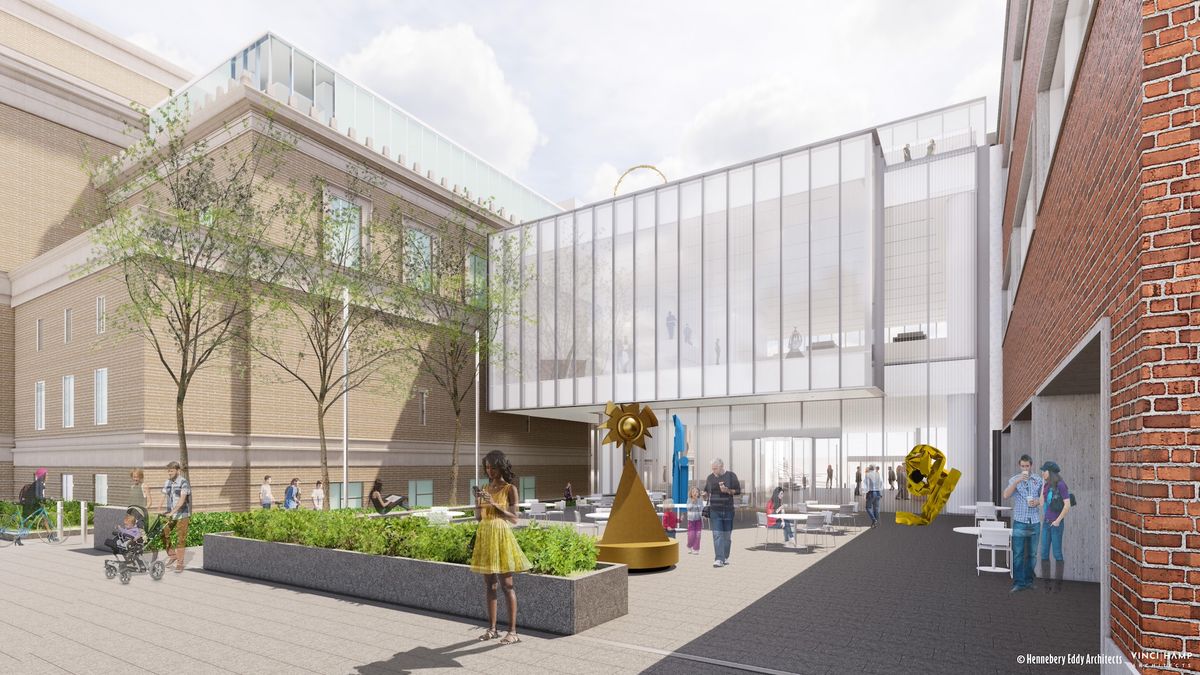Oregon's Portland Art Museum (Pam) is nearing its fundraising goal to boost its endowment, refresh its facilities and build a new pavilion that will connect its existing buildings, which is on track for completion by late 2025.
The museum has now raised 86.5% of its $141m goal, which includes a $30m addition to its endowment and $111m to revamp its facilities and build the new Mark Rothko Pavilion. The 24,000-sq.-ft pavilion, designed by the Chicago-based architecture firm Vinci Hamp in collaboration with the Portland-based Hennebery Eddy Architects, will serve as a gateway to the Pam campus. It is named for the celebrated Modernist painter, whose family emigrated from Latvia to Oregon’s largest city when he was a child. Rothko took art classes at the museum’s school and had his first solo exhibition there.

View of the Portland Art Museum’s community passageway between Southwest Park Avenue and Southwest 10th Avenue looking into the Mark Rothko Pavilion Rendering by Hennebery Eddy Architects and Vinci Hamp Architects
The expansion project will include updates to the Pam’s existing buildings—the main building from 1932 (designed by Pietro Belluschi) and a former Masonic temple that the museum acquired in 1992—and result in 95,000 sq. ft of new or revamped public and exhibition space. The glassy Rothko Pavilion will not only become the main entrypoint of the museum, but will also house a new gallery for contemporary art and the institution’s library and research centre. In a nod to Portland’s famed bicycle culture, the Rothko Pavilion will include a covered passageway between Southwest 10th Avenue and South Park Blocks for cyclists and pedestrians.
“Though the museum has remained open during construction, we are looking forward to welcoming our community back to experience a new Pam next year,” Brian Ferriso, the museum’s executive director and chief curator, said in a statement.

Southwest view of the Portland Art Museum’s campus transformation at dusk from Madison Street Rendering by Hennebery Eddy Architects and Vinci Hamp Architects
Alix Meier Goodman, chair of the museum’s board of trustees, said in a statement: “This project would not be possible without the generous support of so many people from Portland and across the region, along with the foundations and businesses who value the role that the arts play in our city.”
According to museum representatives, 98% of the funding raised for the capital campaign thus far has come from private sources, with gifts from more than 300 donors ranging from $1,000 up to the $13.5m donated by the late philanthropist Arlene Schnitzer.
(Not to be outdone, the Portland Museum of Art on the other side of the US in Maine is in the midst of its own ambitious, $100m expansion project, one that has come amid persistently low attendance numbers and staff layoffs.)


